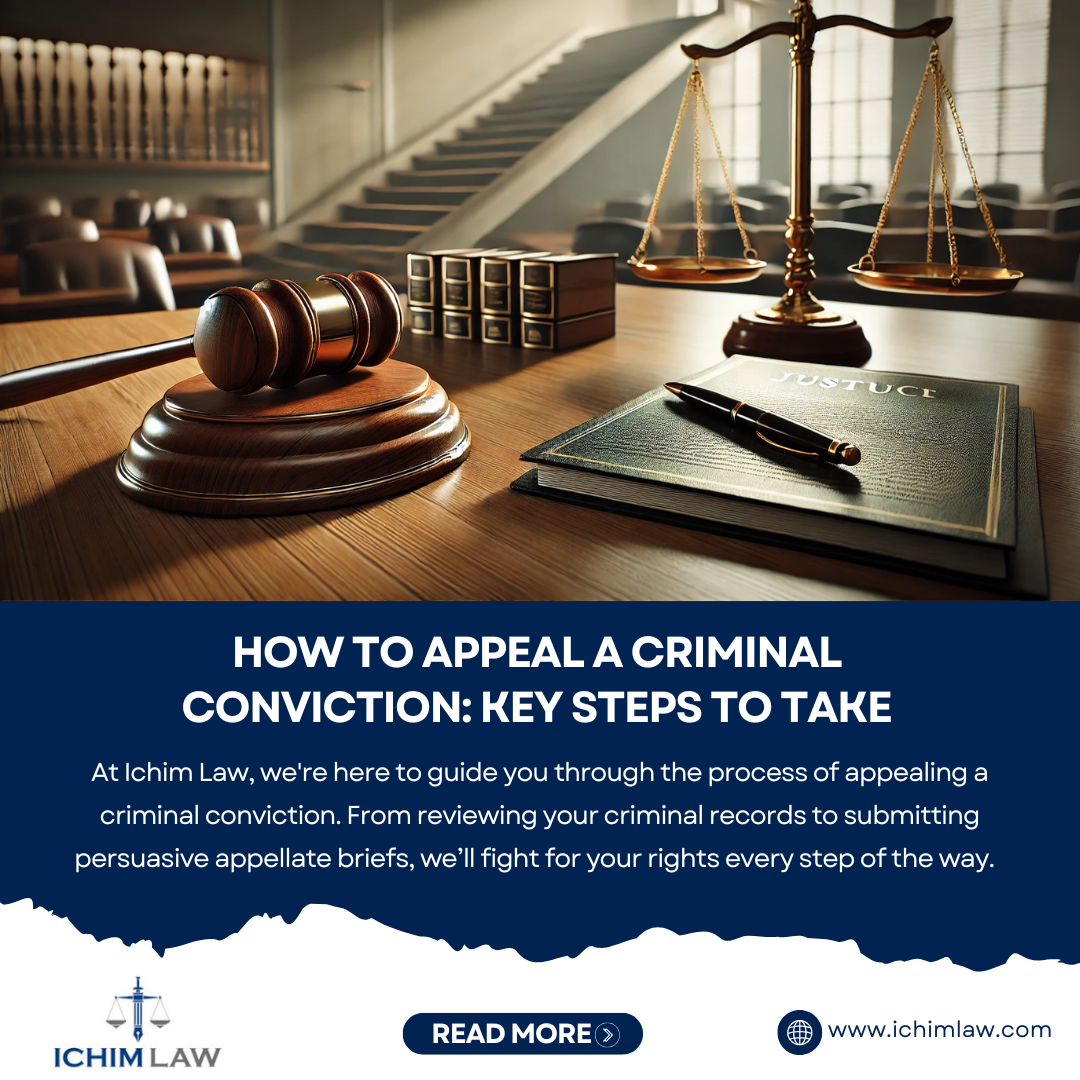Facing a criminal conviction can be overwhelming, but it’s not necessarily the end of the road. If you believe that an error or injustice occurred during your trial, you have the right to appeal the decision. The process of appealing a conviction is not simply a way to challenge the jury’s verdict; it is a structured legal process designed to correct mistakes made during the trial. From reviewing criminal records to submitting an appellate brief, the appeal process involves several crucial steps. Understanding how to appeal a criminal conviction can make the difference between moving forward with a wrongful conviction or securing a fair outcome.
1. Understand the Grounds for Appeal in a Criminal Conviction
The first step in appealing a criminal conviction is understanding the legal grounds on which an appeal can be based. An appeal is not a new trial where witnesses testify again or new evidence is presented. Rather, it focuses on whether specific legal errors occurred during your trial that impacted the outcome. These errors could include improper rulings on evidence, misinterpretation of the law by the judge, or issues with jury instructions. In addition, prosecutorial misconduct, such as withholding exculpatory evidence, or ineffective assistance of counsel, can also be grounds for appeal. To begin the appeal process, your attorney will carefully review your criminal records and trial transcripts to identify any errors that may warrant an appeal.
2. File a Notice of Appeal to Challenge Your Criminal Conviction
Once your attorney identifies valid grounds for appeal, the next step is filing a Notice of Appeal. This is a crucial document that informs both the court and the prosecution of your intention to challenge the criminal conviction. It’s important to act quickly because there are strict deadlines for filing an appeal, often within 30 days of your conviction or sentencing. Missing this deadline could result in losing your right to appeal altogether. Once the notice is filed, your lawyer will begin the process of preparing your case for review by a higher court. This is where reviewing criminal records and other key documents becomes essential, as they will form the basis of the legal arguments presented in the appeal.
3. Obtain Trial Transcripts and Criminal Records
To support your appeal, your legal team will need to gather all relevant documents, including trial transcripts and criminal records. These materials provide a complete record of the trial, including testimony from witnesses, the judge’s rulings, and the instructions given to the jury. The appellate court will rely on these records to assess whether any legal errors occurred that could have affected the outcome of your case. For example, if the judge allowed inadmissible evidence to be presented to the jury, or if the prosecution made inappropriate remarks during closing arguments, these issues could be grounds for an appeal. Your lawyer will carefully comb through the trial records to identify any such errors that may strengthen your case.
4. Draft and Submit an Appellate Brief for the Criminal Conviction Appeal
Once your attorney has identified the legal errors that occurred during your trial, they will begin drafting the appellate brief. This document is the cornerstone of your appeal. It lays out the legal arguments as to why the criminal conviction should be overturned or the sentence reduced. The appellate brief must be persuasive and well-reasoned, as it will be reviewed by a panel of judges who were not present at the original trial. The brief will cite legal precedents, statutes, and constitutional protections that support your claim that the trial was unfair. After submitting the brief, the prosecution will have the opportunity to file a response defending the original conviction. Reviewing criminal records is key to ensuring that all facts and legal issues are accurately presented in the brief.
5. Present Oral Arguments to the Appeals Court
In some cases, the appellate court may request oral arguments from both sides to clarify the issues raised in the appellate briefs. During this phase, your lawyer will present a detailed argument to the appellate judges, explaining why the criminal conviction should be reversed. The judges may ask questions to better understand the legal errors raised in the brief. It’s important to note that this is not a second trial; there is no new testimony or evidence presented. Instead, the focus is on whether the trial court made errors in applying the law. Your lawyer’s familiarity with your criminal records and trial transcripts will be critical in answering the judges’ questions and persuading them that the conviction should be overturned.
6. Clean Up Your Criminal Records After a Successful Appeal
If your appeal is successful, you may be able to clean up your criminal records. This can be done through a process known as expungement or sealing, which removes the conviction from public records. Having a criminal record can have lasting consequences, affecting your ability to find employment, housing, or even obtain certain licenses. Therefore, it’s important to take steps to clean up your criminal records after a successful appeal. Your attorney can guide you through this process, ensuring that you take the necessary steps to restore your reputation and rebuild your life after an overturned conviction.
Consult Ichim Law for Help with Your Criminal Conviction Appeal
Appealing a criminal conviction is a complicated process that requires expert legal knowledge and a thorough review of criminal records and trial procedures. If you or a loved one is considering appealing a conviction, it is crucial to have an experienced legal team on your side. At Ichim Law, we specialize in criminal defense and appeals. We understand the challenges and complexities of the appeal process and are committed to helping our clients fight for justice. Contact us today to discuss your case and learn how we can assist you in appealing a criminal conviction.

